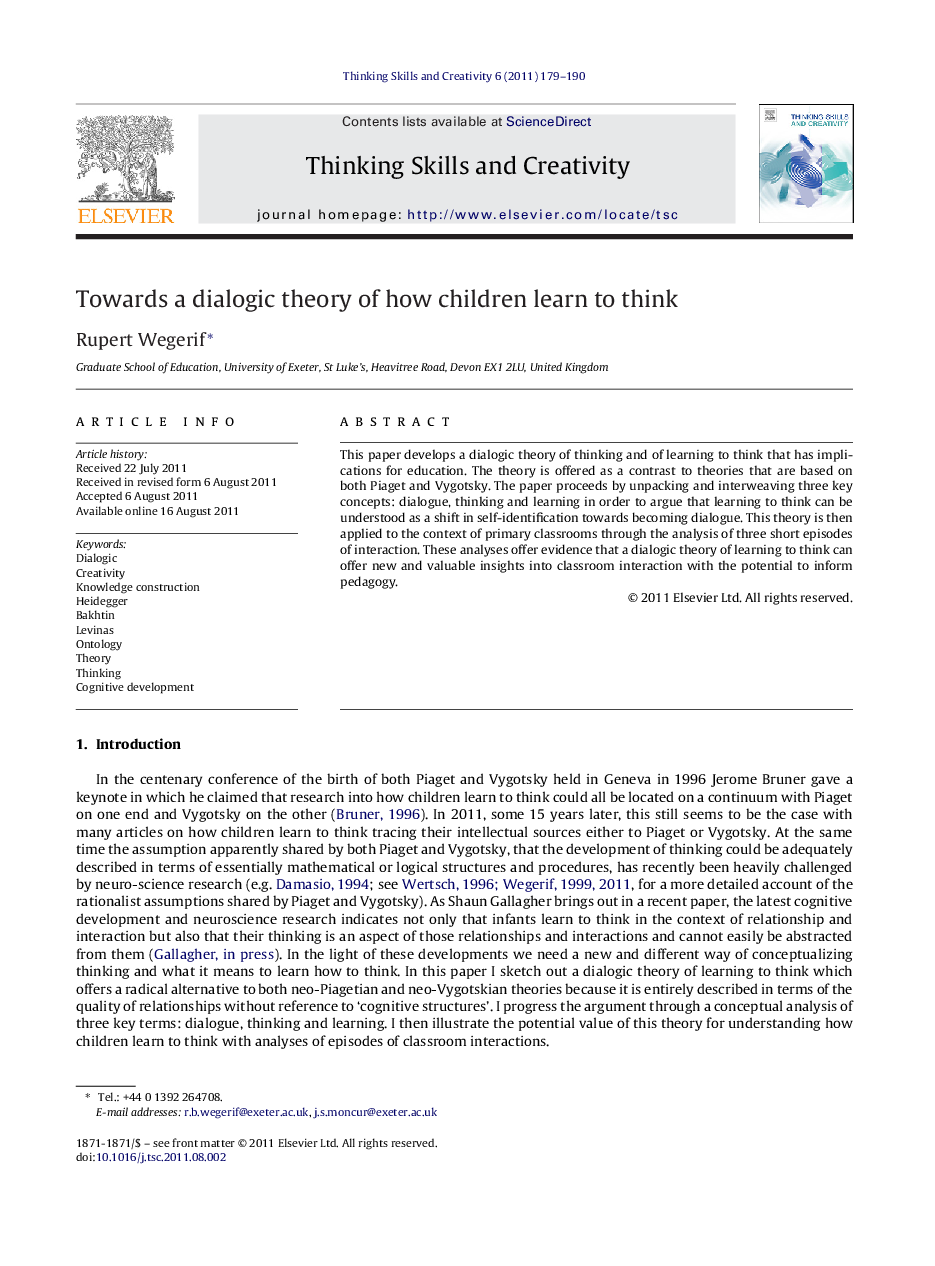| Article ID | Journal | Published Year | Pages | File Type |
|---|---|---|---|---|
| 375723 | Thinking Skills and Creativity | 2011 | 12 Pages |
This paper develops a dialogic theory of thinking and of learning to think that has implications for education. The theory is offered as a contrast to theories that are based on both Piaget and Vygotsky. The paper proceeds by unpacking and interweaving three key concepts: dialogue, thinking and learning in order to argue that learning to think can be understood as a shift in self-identification towards becoming dialogue. This theory is then applied to the context of primary classrooms through the analysis of three short episodes of interaction. These analyses offer evidence that a dialogic theory of learning to think can offer new and valuable insights into classroom interaction with the potential to inform pedagogy.
► A dialogic theory of learning to think that has implications for education. ► The theory contrasts to both Piaget and Vygotsky. ► Learning to think as a shift in self-identification towards becoming dialogue. ► Theory is applied to three short episodes of classroom interaction. ► This dialogic theory of learning to think offers insights which can inform pedagogy.
